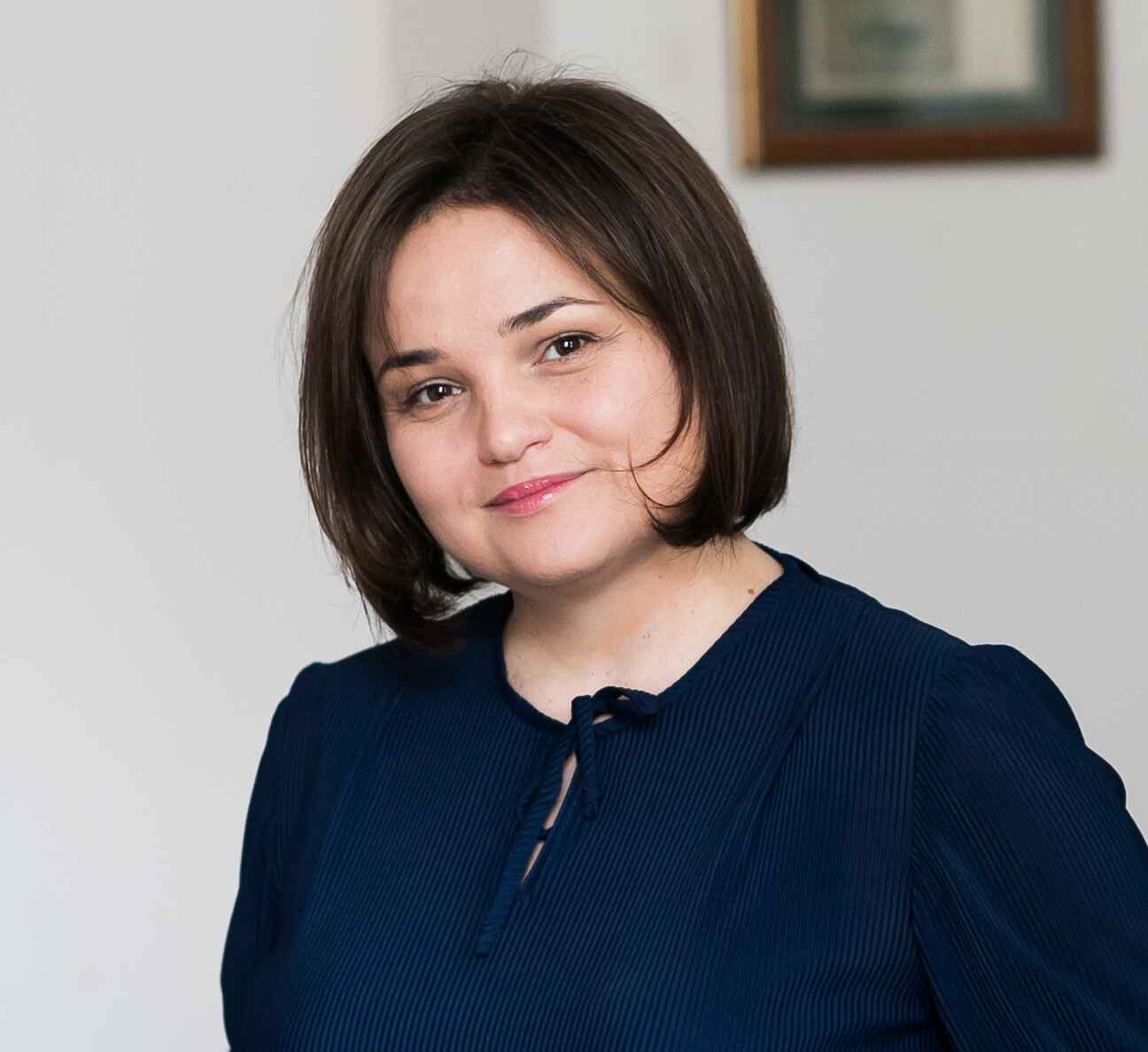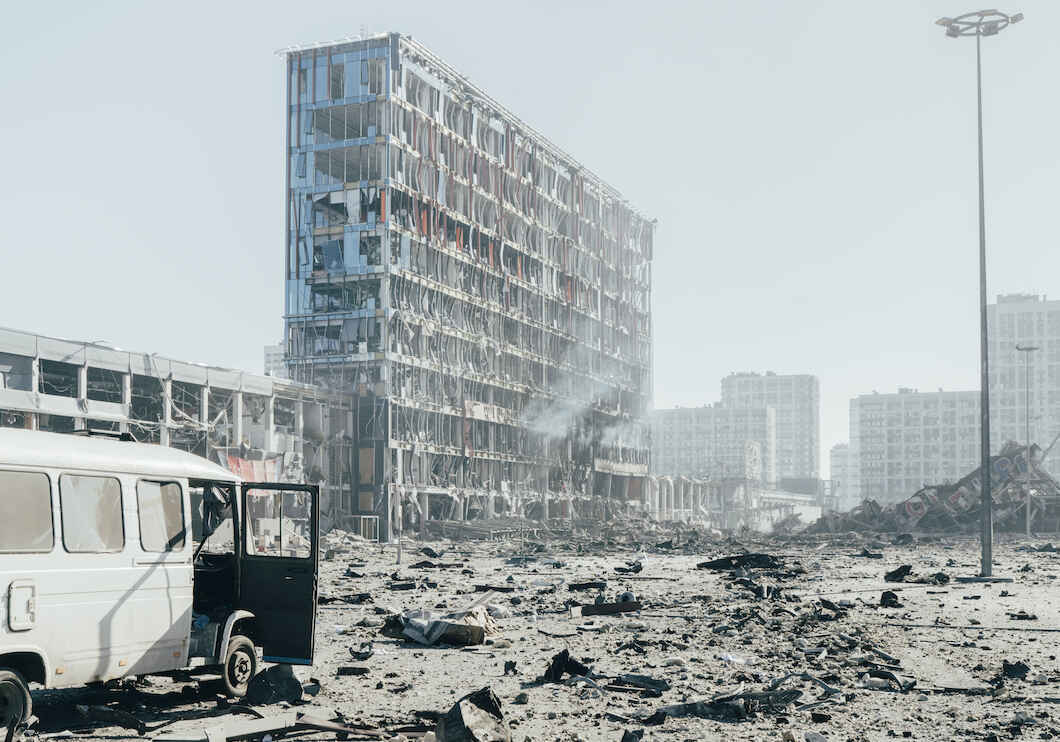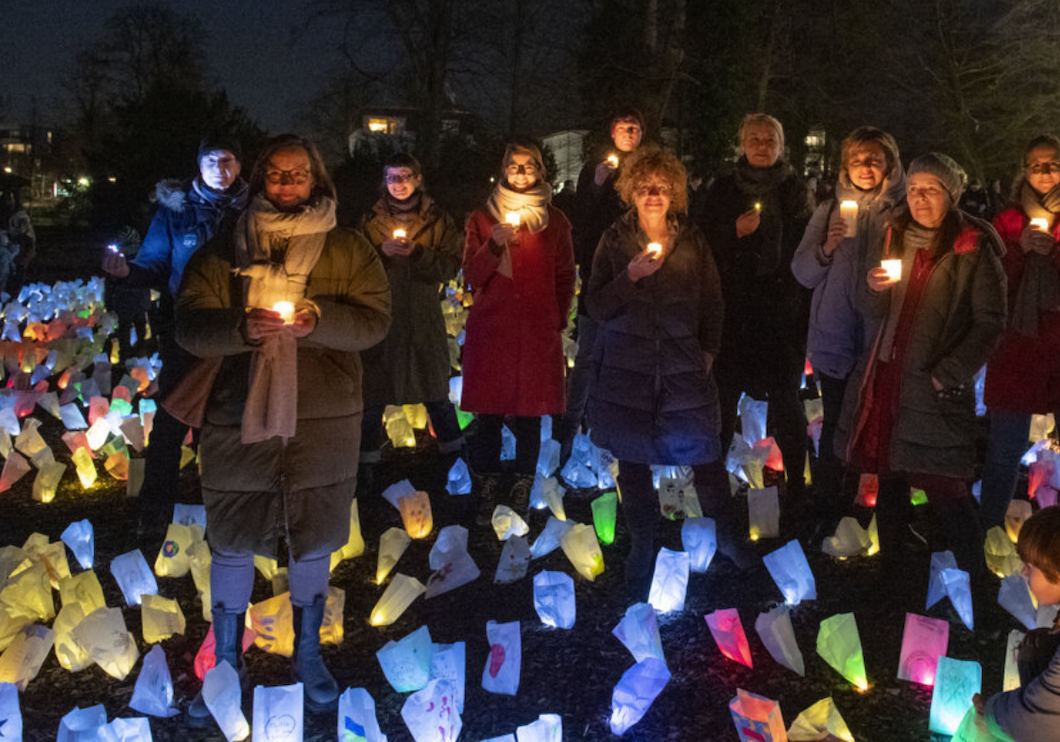
Photo: Iryna Sereda
“These days, I am thinking a lot about Lviv in 1939”
Sofia Dyak, Director of the Center for Urban History in Lviv, explains how the Russian war against Ukraine has changed the life at the Institute and in the city.
Both Körber-Stiftung and the Center of Urban History in Lviv have jointly organized a couple of international roundtables and projects in the last years and continue to work together in these challenging times.
A beautifully restored early 20th Century building in the city of Lviv is home to the Centre for Urban History in East Central Europe. Before 24 February 2022, the day that Russia invaded Ukraine and started a war against its neighbouring country, the Centre for Urban History was an intellectual and social hub. A place for everyone interested the urban past of Lviv as a city at the crossroads of Polish, Jewish, Ukrainian, Austro-Hungarian, German, Russian and Soviet histories.
Historian Sofia Dyak has been the Director of this place since 2010. Before 24 February, her life and the lives of her team were filled with thinking and writing about the history of Lviv, hosting and organizing seminars, lectures and public history initiatives, inventing and implementing digital projects such as Lviv Interactive and the Urban Media Archive a digital encyclopedia and a digital archive about the city and its past.
The war that started on 24 February has changed everything. In a video-call held some days after the beginning of the Russian invasion to Ukraine, Sofia Dyak explained how her life, the life at the institute and in the city as such have changed since then.
How have you spent the first days of the war against Ukraine?
Sofia Dyak: The first two days I was busy taking care of those who depend on me: old parents, of course, but also my team here at the institute. We were speeding processes up in order to pay salaries earlier than usual to make sure that people working at the Center have money at hand.
The whole situation felt surreal at the beginning. All of a sudden, we were living under war conditions. Sirenes, people hiding in shelters, curfews at night. Our new reality. Although, of course, things are much worse in Eastern and Southeastern parts of Ukraine and in Kyiv, the war is present all over the country, including Lviv.
How has the war affected life at the Center for Urban History?
Sofia Dyak: Our place always used to be a meeting place for people with different scientific, social, national and intellectual backgrounds. Very similar to Lviv being a city with a complex, multidimensional past, often intertwined, difficult to grasp, but warm and welcoming. When the war started, people from other parts of Ukraine started coming to the city and to our institute. Journalists, for example, who had to flee Kyiv due to Russian attacks and shooting, but also a team of the Ukrainian Institute, a governmental institution focused on Cultural Diplomacy, and other intellectuals and people from the shelter who are also coming to us. So, we are still a place to meet, but now the conditions have changed drastically. We do as much as we can to let as many people as possible in, we use our guest apartments for those who had to leave their places in other parts of Ukraine, the space we usually use for our public events has been transformed in a kind of dormitory.
What other implications does the current situation have for you and for your team?
Sofia Dyak: We are mostly historians and social scientists, a creative and lively team devoted to the things we are doing. Now, Lviv is a city full of internal Ukrainian refugees. It is a place of arrival for people coming from Southeastern, Eastern and Central parts of our country. It is a transit city to safer places further West, for example in Poland. But it also is a place for those who do not yet want to leave the country or cannot do so, but who still need support. Therefore, we take care of those coming to us here at the institute, but our team also volunteers in other places across the city. Distributing food and drinks at the train station to those who arrive from elsewhere or want to continue their journey to Poland and other neighbouring countries. Offering to listen to those who want to talk about what they have seen elsewhere during this war, helping on very practical questions, spending time in shelters and providing assistance wherever needed.
Which role does your professional background play for the way you look at the current war?
Sofia Dyak There are, of course, many repercussions of history coming to my mind. In these days, I am thinking a lot about life in this city in 1939. When the Soviet Union occupied Lwow in Southeastern Poland under the German-Soviet pact in September that year, more than 100.000 Jewish refugees from the German-occupied parts of Poland used to live here. A city full of refugees that had fallen into the Soviet “sphere of influence”, a war that had just started. This all makes me think a lot about similarities and differences. All this violence that came up then, all this violence that we see now. In addition, I do think that, although we are currently in the middle of an ongoing 21st Century war and have to care about defending our sovereignty, securing our lives and survival, we need to start thinking about how to deal with this war as historians in the future.
What do you mean by that?
Sofia Dyak: I think we need to start thinking about how we are going to write the history of this war in the future. This means, we have to collect evidence and future sources. There are, of course, many questions linked to that. Questions of ethics and moral, for example. But I am sure that we need to do our best to combine the humanitarian aid and assistance we provide at the Center for Urban History with our historian´s approach of documenting the stories and experiences from the ongoing war for future generations. Sometimes, these documentations might also be helpful to identify war crimes at a later stage.
How are you personally affected by the current situation? What are your plans?
Sofia Dyak: I do not plan to leave Lviv. I will stay here as long as this will be possible. The Center for Urban History and its team are needed here in these challenging times. And also, on a personal level, compared to so many others I do not want to complain. I have a great team here, a family I care about, I have a place to stay, we try to help those who have lost their places and belongings elsewhere. That´s why I will not go.
What do you think can other people outside of Ukraine do to support Ukrainian civil society now during this ongoing war?
Sofia Dyak: Each single activity by each individual matter: demonstrate, donate, volunteer, help refugees, write to your representatives to do everything to stop civilian losses. These days there have to be the ways to protect Ukrainian cities where people are killed and face humanitarian disaster. Wars touch everybody, not only those directly attacked. Act in your sphere, go beyond your usual routines and comfort zones, as we are facing a war of a scale unseen in Europe since 1945.
Interview: Gabriele Woidelko
7 March 2022

